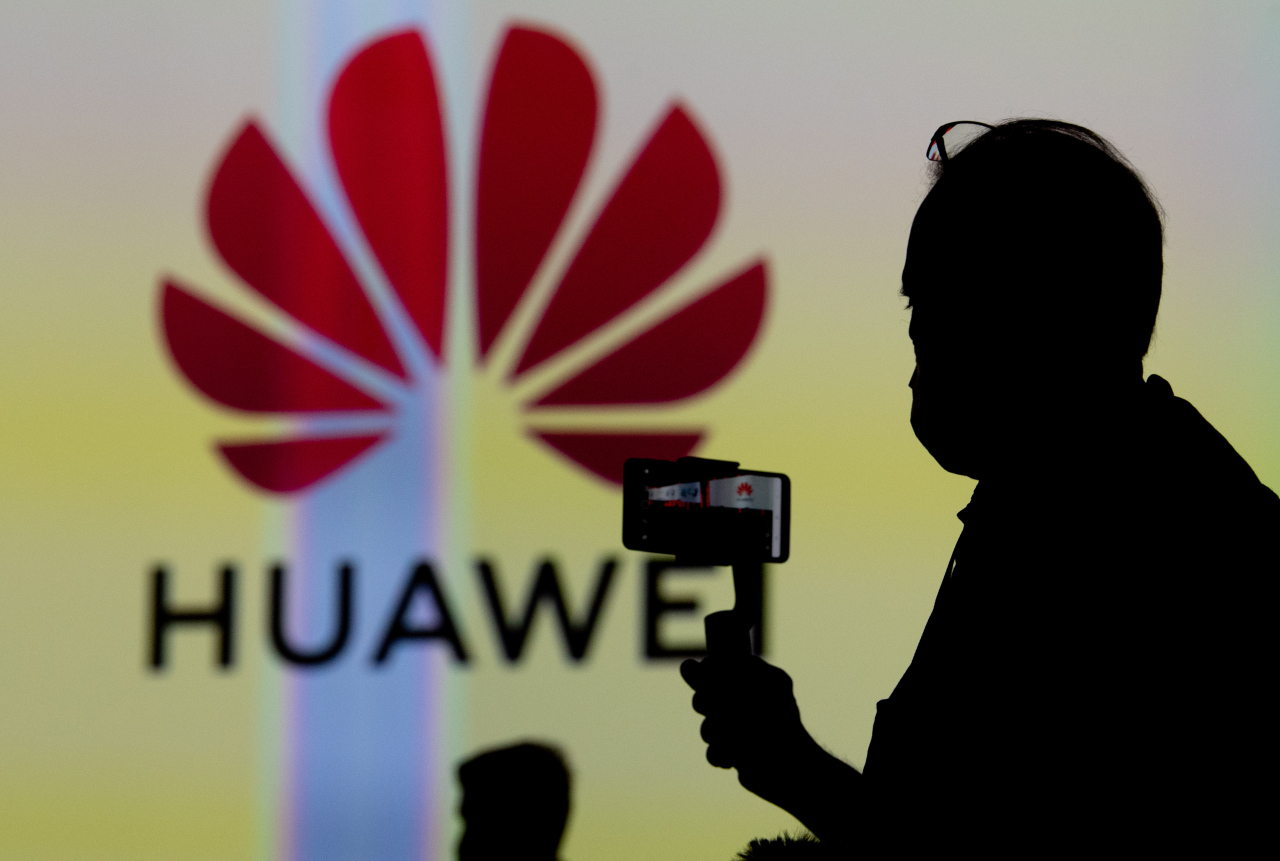Korean tech industry braces for new US sanction on Huawei
New restriction’s reach extends to displays, 5G parts
By Song Su-hyunPublished : Sept. 10, 2020 - 15:39

Korean technology companies are bracing for possible sales declines in the fourth quarter, as the United States is set to cut off China’s tech giant Huawei from various chip supplies starting Tuesday.
The semiconductor and display industries are on alert due to the new US sanction that directly bans supplies of memory chips, display panels for TVs and smartphones and parts related to 5G designed using US technologies to Huawei without US approval.
“It is impossible to manufacture chips not using US technologies, although it’s difficult to specify what is exactly a US-made technology,” an industry insider said.
Samsung Electronics and SK hynix, the world’s biggest memory chip suppliers, have reportedly applied with the US government for a license to supply chips for Huawei as part of measures to minimize the impact of the sanction.
Huawei is one of the five biggest customers of Samsung, with sales of around 7.3 trillion won ($6.16 billion) last year. SK hynix’s sales from Huawei were around 3 trillion won last year, according to Eugene Securities.
Samsung sells Huawei memory chips for smartphones, image sensors and drive ICs for displays.
Considering the intensifying tension between Huawei and the Trump administration, the likelihood of getting US approval to supply chips is very low, industry officials say.
The companies officially declined to comment on the issue.
The US is highly likely not to grant approval for the Korean chipmakers‘ requests, said Rhee Soo-mi, a lawyer with Arnold & Porter, during an online seminar held by the Korea International Trade Association on Thursday.
“The basic stance of the US government is to not issue any licenses to semiconductor sales for Huawei,” Rhee said. “The latest sanction makes the license issuance more difficult.”
Chipmakers are required to reveal the volume of shipments and where the shipments are headed.
“The applications for export licenses could be issued in 90 days by law, but due to complexity of the issue, that would take eight months to one year,” the lawyer said.
If companies are found to have violated the sanction, up to 20 years of imprisonment or a penalty of $1 million per case could be imposed.
“Companies will have to check thoroughly where their export shipments are bound for,” she said. “Any indirect links with Huawei could be sanctioned.”
“The sanction could be viewed negatively as the Korean chipmakers are losing a major customer in the short term,” an industry official said. “But in the long run, the companies would be able to find new customers for their memory products because memory chips can be used universally.”
This is the first time US restrictions on Huawei will affect the display industry.
Samsung Display and LG Display, which both provide smartphone display panels for Huawei, would both take hits from the US sanction.
LG Display has recently started supplying organic light-emitting diode panels to Huawei, which will be suspended next week.
“If Huawei stops producing smartphones, other Chinese vendors like Oppo, Vivo and Xiaomi will cover the market volume, so display companies are likely to increase sales to those vendors,” an industry official said.
Some have raised concerns that other electronic parts like multilayer ceramic capacitors that are necessary in chip-powered electronics could be influenced by the US sanction in the long run.
The sanction, which comes into effect Tuesday, wouldn’t immediately affect the third-quarter performance of the Korean companies, but slight dips in fourth-quarter sales will be inevitable unless they find new customers.
Market researcher TrendForce forecasts the price of DRAM to continue declining by about 10 percent in the fourth quarter of this year.
By Song Su-hyun (song@heraldcorp.com)




![[Music in drama] Rekindle a love that slipped through your fingers](http://res.heraldm.com/phpwas/restmb_idxmake.php?idx=644&simg=/content/image/2024/05/01/20240501050484_0.jpg&u=20240501151646)

![[New faces of Assembly] Architect behind ‘audacious initiative’ believes in denuclearized North Korea](http://res.heraldm.com/phpwas/restmb_idxmake.php?idx=644&simg=/content/image/2024/05/01/20240501050627_0.jpg&u=20240502093000)




![[KH Explains] Will alternative trading platform shake up Korean stock market?](http://res.heraldm.com/phpwas/restmb_idxmake.php?idx=644&simg=/content/image/2024/05/01/20240501050557_0.jpg&u=20240501161906)






![[Today’s K-pop] Stray Kids go gold in US with ‘Maniac’](http://res.heraldm.com/phpwas/restmb_idxmake.php?idx=642&simg=/content/image/2024/05/02/20240502050771_0.jpg&u=)